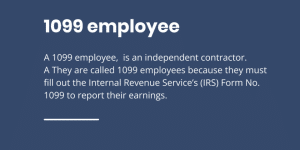Updated February 14, 2025
How to File an HR Complaint Against My Employer
Facing challenges in the workplace can feel overwhelming, but California law offers employees strong protections against discrimination, harassment, retaliation, and other misconduct. Understanding how to file a complaint against your employer is an essential first step to safeguarding your rights. This guide provides actionable steps and critical insights to help you navigate the complaint process effectively.
Identify the Nature of Your Complaint
- Discrimination: Unequal treatment based on race, gender, age, disability, religion, or other protected categories.
- Harassment: Hostile work environment, including sexual harassment.
- Wage and Hour Violations: Issues such as unpaid overtime, failure to provide breaks, or not meeting minimum wage requirements.
- Retaliation: Actions taken against employees for whistleblowing or asserting their legal rights.
Seek Internal Resolution
- Report to HR: File a formal complaint with your Human Resources department. Document every interaction and include supporting evidence such as emails, text messages, or performance reviews.
- Follow Company Policies: Review your employee handbook for specific procedures to report grievances.
Document Everything
- Dates and Times: Log when incidents occurred.
- Details: Record conversations and actions, quoting any offensive remarks.
- Witnesses: Note colleagues who can corroborate your account.
- Evidence: Save emails, texts, photos, or other records relevant to your complaint.
Understand Your Legal Rights
- Fair Employment and Housing Act (FEHA): Protects against workplace discrimination, harassment, and retaliation.
- California Labor Code: Governs wage and hour protections.
- Retaliation Protections: Prohibits employers from punishing employees for reporting workplace violations.
File a Complaint with the Appropriate Agency
Consult an Employment Lawyer
- Assess the strength of your claim.
- Help you meet filing deadlines.
- Represent you during mediation, hearings, or litigation.
Protect Yourself from Retaliation
- Demotion or termination.
- Negative performance reviews.
- Denial of promotions or benefits.
Evaluate Your Legal Claim
- Evidence Strength: Do you have sufficient proof?
- Potential Damages: Calculate lost wages, emotional distress, and punitive damages.
- Possible Remedies: These may include compensation, reinstatement, or policy changes.
Consider Alternative Dispute Resolution (ADR)
Pursue Legal Action if Necessary
The first step in filing a complaint is understanding the issue at hand. Common workplace grievances include:
Accurately categorizing your issue will determine the appropriate agency and process to follow.
Before escalating matters externally, it may be beneficial to attempt an internal resolution:
While internal processes may resolve the issue, be prepared to escalate if no action is taken or if retaliation occurs.
Proper documentation can make or break your case. Include:
California offers some of the nation’s most robust employment protections, including:
If internal efforts fail, you may need to escalate to a government agency. Key agencies include:
California Civil Rights Department (CRD)
Handles complaints related to discrimination, harassment, and retaliation under FEHA. To file:
Visit the CRD’s website and complete the online intake form.
Provide details about the employer and alleged misconduct.
Participate in mediation if offered, or proceed with your right-to-sue letter.
U.S. Equal Employment Opportunity Commission (EEOC)
Handles federal discrimination complaints. To file:
Submit a charge within 180 days of the incident (or 300 days if overlapping state laws apply).
The EEOC may investigate, mediate, or issue a right-to-sue letter.
California Labor Commissioner’s Office
For wage and hour disputes, such as unpaid wages:
File a wage claim online or in person.
Attach supporting documents like pay stubs or timesheets.
Attend a hearing if required.
Navigating the complaint process can be complex. An experienced employment attorney can:
Pro Tip: The statute of limitations for most FEHA claims is one year from the date of the incident. File promptly to preserve your rights.
California law prohibits retaliation against employees who file complaints. Retaliation may include:
Document retaliatory actions and consult an attorney immediately if retaliation occurs.
With your attorney, evaluate:
Some employment contracts require mediation or arbitration before filing a lawsuit. Discuss ADR options with your attorney as they can often resolve issues faster and with less conflict.
If all else fails, your attorney can help you file a lawsuit. This involves:
- Drafting and filing the complaint in court.
- Engaging in discovery to gather evidence.
- Representing you during trial or settlement negotiations.
FAQs About Filing a Complaint Against an Employer
How long do I have to file a complaint?
- For CRD complaints, you generally have one year from the incident date.
- EEOC complaints must be filed within 180 days, extendable to 300 days if state laws apply.
What evidence do I need?
- Documentation such as emails, pay stubs, witness statements, and performance reviews strengthens your case.
Can I remain anonymous?
- Agencies like the EEOC and CRD may offer anonymity during initial investigations, but full anonymity is unlikely if the matter proceeds.
What if my employer retaliates?
- Document all retaliatory actions and consult an attorney immediately. California law offers strong protections against workplace retaliation.
Do I need a lawyer to file a complaint?
- While not required, a lawyer significantly improves your chances of a favorable outcome by navigating complex legal requirements.
Conclusion
Filing a complaint against your employer can be intimidating, but understanding the process and your rights is critical. Whether your issue involves discrimination, harassment, or wage violations, taking proactive steps and seeking legal guidance can lead to a resolution.
If you’re employed by a California employer, contact a good employment attorney first, for expert assistance. As the best employment lawyers in Los Angeles, we specialize in workplace disputes, including discrimination, retaliation, and wage violations. Call us today for a free and confidential consultation.






